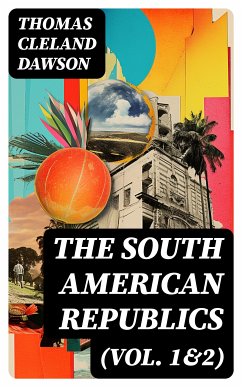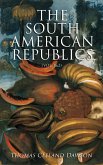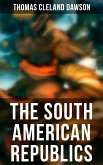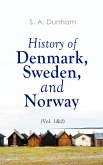Thomas Cleland Dawson's comprehensive historical examination, 'The South American Republics' (Vols. 1 & 2), articulates the multifold intricacies of the South American nations from their nascent stages of colonial occupation to their protracted quest for democratic stability post-independence. Through a meticulous chronicling of events and cultural analyses, Dawson synthesizes the perils of postcolonial identity and statehood amidst the broader tapestry of Western Hemisphere politics. Courting both the literal and the literate, his narrative style intertwines the scholarly rigour of academia with the narrative fluency of a seasoned historian, catering to both specialists and general readers alike. The work situates itself against the backdrop of previous historiographies, aiming to fill the scholarly void regarding post-revolutionary South America, particularly addressing the persistent cycles of turmoil and reformative aspirations for republican governance. Dawson, influenced by his experiences and extensive diplomatic career, delves into the legacies of Spanish and Portuguese dominions, deciphering the historical DNA that predisposed these republics to a tumultuous political life. His sagacious insight into the interplay between colonial inheritance and the tumult of independence offers a profound understanding of the revolutionary forces carving the modern contours of the continent. The author's diplomatic service, combined with his intense study of South American affairs, renders him exceptionally suited to undertake such a panoramic exploration of this geographically and historically complex region. 'The South American Republics' is an essential read that offers an invaluable, in-depth exploration of the compelling narrative of South American political and cultural evolution. Scholars, students, and enthusiasts of Latin American history and politics are invited to absorb Dawson's scrupulous research and thought-provoking analysis. In these volumes, readers will find an undeniable appreciation for the persistent struggle towards republicanism and democracy, set against the vivid tableau of a diverse and dynamic continent in the throes of finding its own distinct place in the annals of global history.
Dieser Download kann aus rechtlichen Gründen nur mit Rechnungsadresse in A, B, BG, CY, CZ, D, DK, EW, E, FIN, F, GR, H, IRL, I, LT, L, LR, M, NL, PL, P, R, S, SLO, SK ausgeliefert werden.









